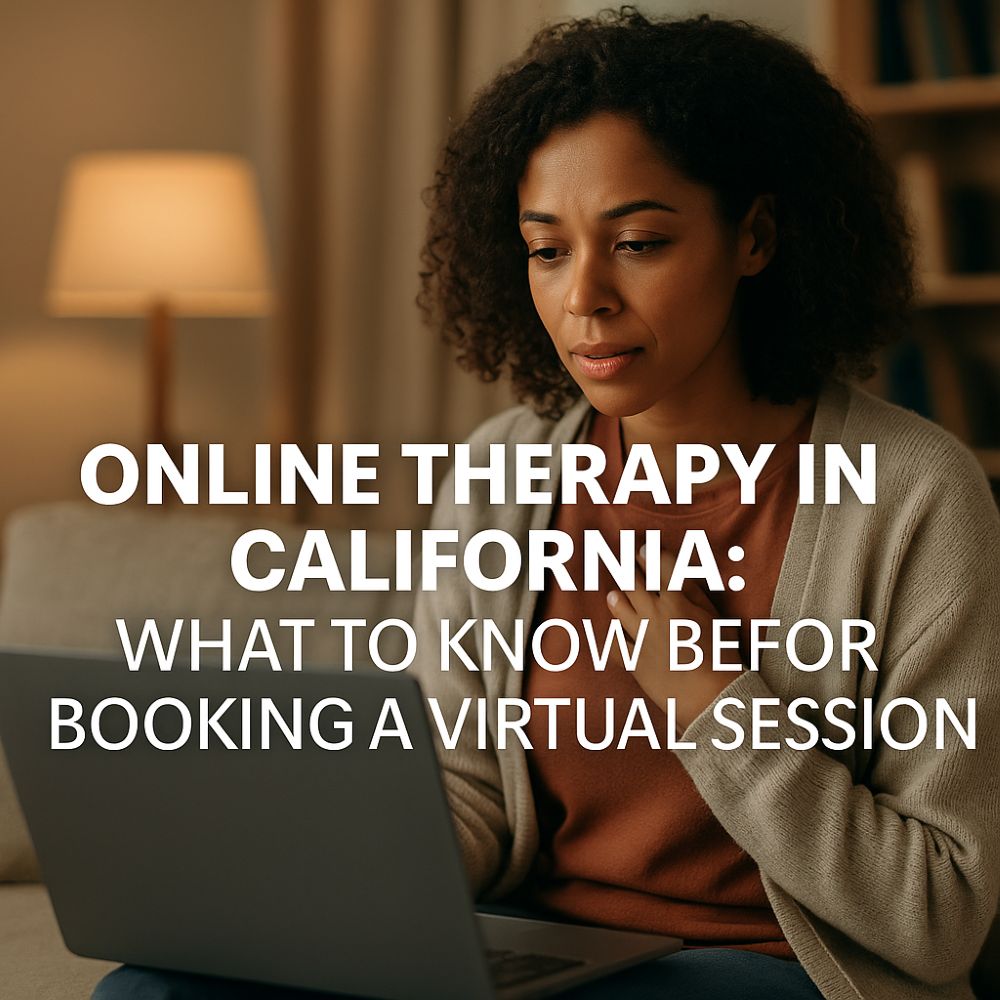Imagine sitting across from your partner, both of you yearning for connection, yet feeling like you’re living on separate islands. The decision to seek a marriage counselor often comes at a pivotal moment—one filled with both hope and uncertainty. As someone who has spent decades helping couples reconnect, I deeply understand the courage it takes to reach out for help.
This guide is designed to bring clarity to your search, offering steady guidance and reassurance as you take these first important steps together. Whether you’re longing to strengthen communication, rebuild trust, or simply feel seen and heard again, the right therapist can become a powerful ally on your journey back to each other.
Step 1: Why Specialized Training Matters When Choosing a Marriage Counselor
Finding the right marriage counselor isn’t just about finding someone with a license — it’s about finding someone who truly understands the delicate, beautiful, complicated dance between two people in a relationship.
Over the years, I’ve seen how couples flourish when they work with a therapist trained specifically in relationship dynamics. Without that specialized training, even the best intentions can fall short. You deserve someone who knows how to help you both find your way back to each other.
As you begin your search, keep an eye out for credentials like LMFT (Licensed Marriage and Family Therapist). And don’t be afraid to ask: “How much experience do you have working with couples?”
You have every right to choose someone who can meet you where you are — and walk beside you toward where you want to go.
Here are a few proven approaches you might come across:
Gottman Method:
If you’re craving better communication and practical tools for navigating conflict, the Gottman Method offers research-backed strategies to help you reconnect as friends and partners.. Learn how the Gottman Method helps couples communicate better.
Emotionally Focused Therapy (EFT):
The approach closest to my heart, EFT helps partners move past old hurts and build a deep, lasting bond. It’s about feeling safe again — and knowing you can reach for each other and be received with love.
Cognitive Behavioral Therapy (CBT):
CBT helps couples notice and shift unhelpful patterns in thinking and behavior, creating space for healthier, more supportive ways of relating to each other.
Choosing someone with the right training isn’t just a technical detail — it’s an act of love, for yourself and for your relationship. It’s your first step toward hope, healing, and a stronger connection
Step 2: Get Recommendations and Evaluate Fit
One of the best ways to begin your search is by asking trusted people for recommendations. Friends, family members, doctors, or even other therapists can often point you toward someone they know and trust.
Once you have a few names, take a moment to explore each counselor’s website or online profile. Notice how they describe their work. Does their approach feel encouraging? Do their words make you feel seen and understood?
A thoughtfully written website or blog can offer subtle but important clues about a therapist’s style, values, and personality. You deserve someone whose voice feels like a fit — even before you ever pick up the phone.
Following that quiet sense of “yes, this feels right” is an important first step toward finding the support your relationship needs.
Step 3: Assess Communication Style and Comfort
In my experience, the connection between a couple and their therapist is one of the most important ingredients for real change.
During your initial consultation, notice how the therapist responds to both of you. Do you feel heard, understood, and respected? Are they able to stay neutral and balanced, holding space for both partners without judgment?
A skilled therapist doesn’t choose sides — they create a safe environment where both of you can speak honestly, feel valued, and begin to rebuild trust. Feeling emotionally safe from the very first session lays the foundation for all the work to come.
Real-Life Scenario:
Imagine a couple locked in constant arguments, growing more distant with every conversation. Through therapy, they learn to recognize the emotional triggers that keep pulling them into conflict — and to use simple, structured tools to communicate more clearly and kindly.
Over time, their conversations soften. Respect replaces resentment. Trust, once fragile, begins to grow strong again. If you’re struggling with communication, this article dives deeper into what causes breakdowns and how to repair them.
That’s the kind of shift you’re looking for: conversations that heal rather than hurt, and a connection that feels safe, steady, and full of hope.
Step 4: Ask the Right Questions in Your First Session
Approach your first meeting with a spirit of curiosity, not pressure. This is a time to explore whether the therapist feels like the right fit for you — not a commitment you have to make right away.
Coming prepared with a few thoughtful questions can help you get a clear sense of their approach and whether it aligns with your needs as a couple. Here are four essential questions to ask during that first conversation:
How do you typically work with couples?
(You’ll get a feel for their process and whether it matches what you’re hoping for.)
What outcomes should we expect?
(A good therapist will set realistic, hopeful goals while being honest about the work involved.)
What’s your style when conflict arises in session?
(You want someone who can navigate tough moments with skill, keeping both partners feeling safe and supported.)
Asking these kinds of questions early on helps you move forward with greater confidence — and sets the tone for open, collaborative work together. I’ve posted a more comprehensive list of questions in a previous article: What To Look For In A Marriage Counselor You Both Like: A Therapist’s View.
If something feels off, trust your instincts. Schedule a consultation today to talk it through. A therapist who is a great fit will make you feel respected and supported from the beginning.
Step 5: Consider Session Logistics and Accessibility
Finding the right emotional fit is essential— but the practical details matter too.
In my work with couples, I’ve seen how much easier therapy feels when sessions fit naturally into your life, not the other way around.
Before you commit, take a moment to ask about a few key logistics:
- In-person or virtual options:
(Does the therapist offer flexibility? What setting helps you and your partner feel most comfortable and present?) - Session fees and insurance:
(What is the cost per session? Do they accept your insurance, or offer payment plans or sliding-scale options?) - Availability during evenings or weekends:
(If your schedules are hectic, having options outside of typical office hours can make a big difference.)
The right therapist will want to make therapy accessible and manageable for you — because real healing happens when the process supports your life, not adds more stress to it.
Step 6: Make a Joint Decision After a Few Sessions
After one or two sessions, take some time to reflect together.
How did each of you feel during and after the conversations? Was there a sense of being heard, even in small ways? Did you notice any shifts — more patience, a little more understanding, a touch of relief?
Progress in therapy often begins quietly.
I often remind couples that it’s not always dramatic breakthroughs that matter most — it’s the smaller moments: less tension in a conversation, a gentler response during conflict, or a sense of being more connected, even in hard moments.
These early shifts are important.
They are signs you’re beginning to build new trust, step by step — creating a stronger foundation for lasting change.
Therapist Selection Checklist
Use this quick checklist to help guide your decision:
- ✅ Verify credentials: Are they licensed and trained in couples therapy?
- ✅ Experience: Have they worked with issues similar to yours?
- ✅ Approach: Does their therapy style suit your goals?
- ✅ Logistics: Are sessions affordable and accessible for your schedule?
- ✅ Comfort level: Do both of you feel comfortable and heard?
Conclusion, Now You’re Ready!
Choosing a marriage counselor is a big decision — but it doesn’t have to feel overwhelming.
With the right guidance and a clear, thoughtful process, you and your partner can find a therapist who helps you move from feeling stuck to feeling supported, understood, and connected again.
Over the years, I’ve witnessed incredible transformations when couples find the right therapeutic fit. Healing begins. Trust rebuilds. Conversations soften. Small moments of connection grow into a stronger, more resilient bond.
You deserve that kind of care — and that kind of hope. You deserve a relationship where both of you feel safe, valued, and truly seen. Don’t settle for less than that. Take the next step—book a session now.
If you’re ready to take the next step, I would be honored to walk alongside you.
Book your first session today — and start building the relationship you both long for and deserve. Book your first session with me today.
FAQs About Finding a Couples Therapist
How long should we stay in couples therapy?
Every couple is different. Some need just a few sessions to address a specific issue, while others benefit from longer-term support to heal and grow.
Can virtual couples therapy be as effective as in-person sessions?
Absolutely. I’ve worked with many couples remotely, and with the right approach, virtual sessions can be just as powerful.
What if one partner is unsure about going to therapy?
Start with one session. I often tell hesitant partners that therapy is just a conversation—it doesn’t mean something’s wrong, it means you care enough to invest.
How do we know if therapy is working?
Look for small shifts—less defensiveness, more openness, or even a shared laugh during a tough moment. Progress often starts small and builds with time. To avoid common pitfalls, explore the biggest mistakes couples often make in therapy.
What if therapy feels too intense or emotional?
It’s okay to feel overwhelmed at first. A skilled therapist will pace sessions appropriately and create a space where you feel safe to explore difficult topics.
How should we talk to our kids about going to therapy?
Keep it simple and age-appropriate. Let them know you’re working together to strengthen your relationship, just like you might go to a doctor to stay healthy.







